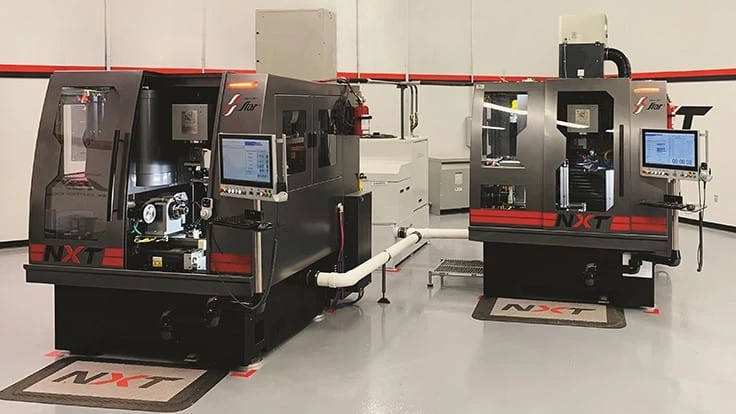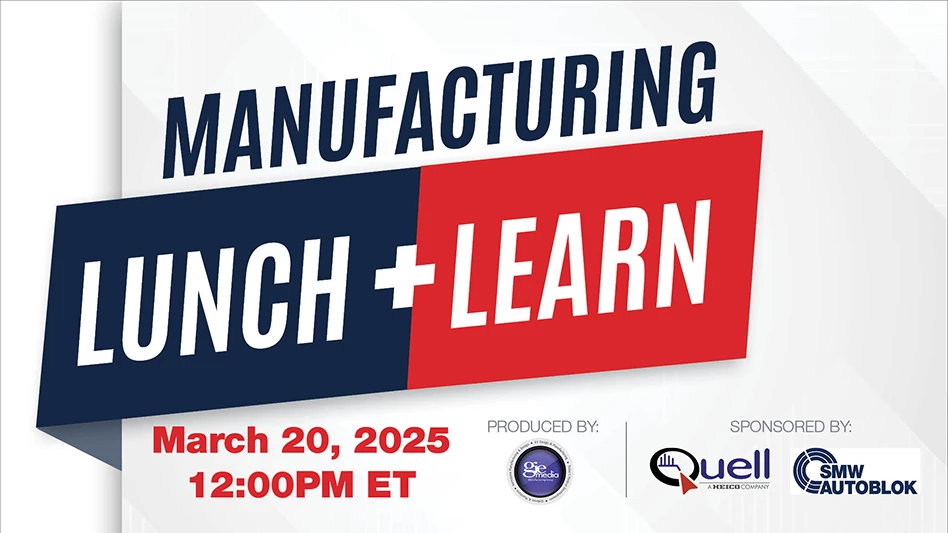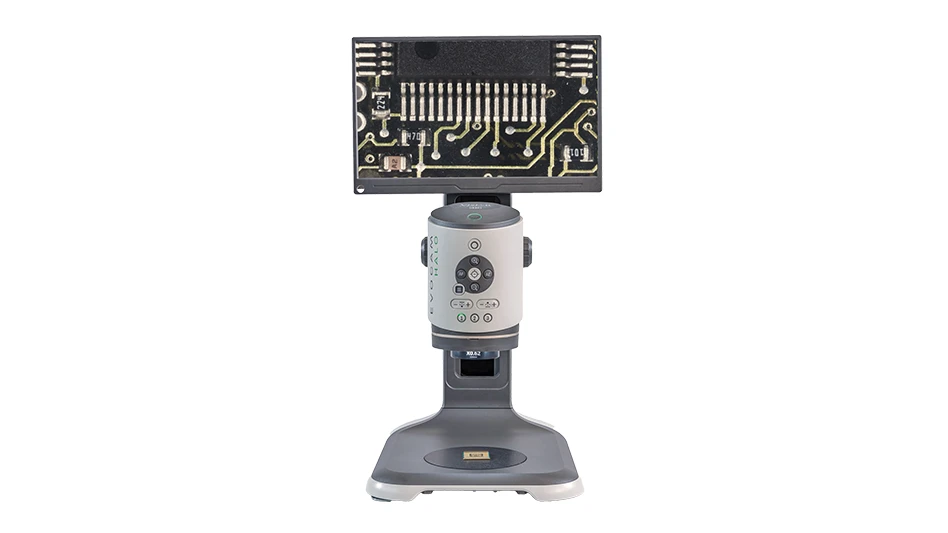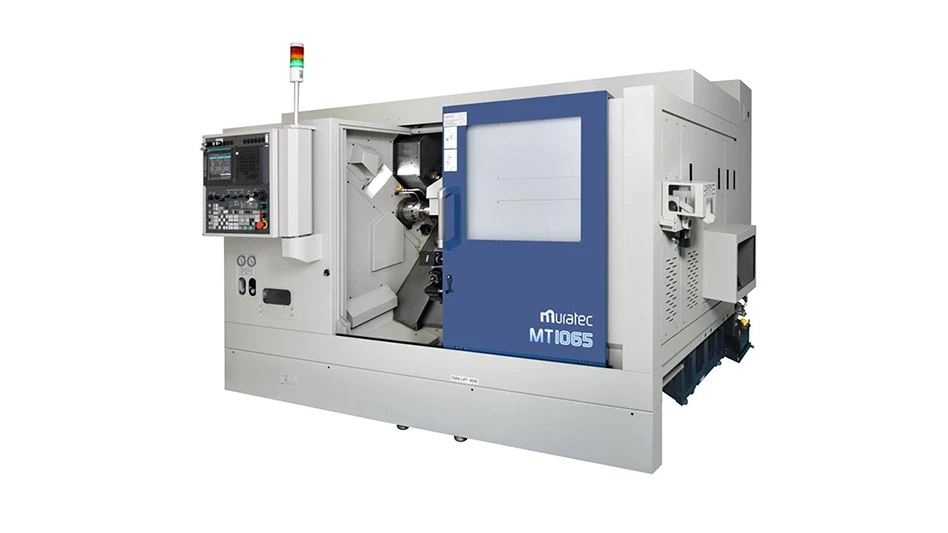
Star Cutter Elk Rapids facility adds machine tool demo area
Recent upgrades by Star Cutter Company to its Elk Rapids, Michigan, facility, where it produces tool and broach grinders, include a complete modernization of the 25,000ft2 climate-controlled building featuring state-of-the-art workspaces and conference room with virtual meeting capability. In addition, a 1,500ft2 area has been created on the plant floor that is dedicated to customer run-offs and demonstrations with space for two machines at any time. Video and remote demonstrations and run-offs are also available.
For companies interested in visiting the facility, the demonstration grinders are NXT 5-axis tool grinders performing: 1) automated medical broach grinding with Esprit through the NUMROTO interface, and 2) automated round tool and insert grinding.
Star Cutter has maintained a northern Michigan presence since the mid-1960s, and this most recent facility upgrade confirms its ongoing investment in its local communities.
To visit the facility or to request a demonstration, email sales@starcutter.com or visit https://www.starcutter.com.
Open Mind Technologies celebrates 25 years in North America

https://www.openmind-tech.com/en-us.html
Open Mind's focus on CAM, and its continued commitment to the latest technologies, produces trend-setting innovations that make it significantly easier for customers to achieve substantial quality, time, and cost improvements.
Open Mind Technologies USA Inc., the North American subsidiary of Open Mind Technologies AG, announced it is celebrating its 25th anniversary of CAM software achievements this year. Open Mind is the developer of the hyperMILL software suite, and is one of the world’s leading CAD/CAM solutions.
“We are excited to reach this important milestone,” says Alan Levine, Managing director of Open Mind Technologies USA Inc. “We attribute our sustained growth to the strong product provided by our global headquarters, together with our local sales, engineering, and service delivery. Our team is dedicated to providing customers with an optimal CAD/CAM experience including outstanding technical consultation and service.”
Levine continues, “Our team is strategically located across the nation as well as in Canada and Mexico to closely collaborate with customers on local and regional levels, and stay up-to-date on market requirements.”
Volker Nesenhöner, CEO, Open Mind Technologies AG says, “We congratulate Alan and his entire team in North America. Open Mind continues to expand market share in the United States, Canada and Mexico as the hyperMILL software suite is a superior choice for highly productive machining.”
Leading the way in 5-axis processing, Open Mind developed the world's first CAD/CAM system utilizing an automatic multi-axis simultaneous machining strategy for mold and die, and also introduced many CAM software techniques including strategies for conical barrel cutters, auto-indexing, and 5-axis helical drilling. In addition to providing a high-performance and innovative CAM software solution, Open Mind's hyperMILL software offers connectivity to CAD systems, feature and macro technology, tool management systems, automation, simulation, probing, and more. The company continues to be at the forefront of key and emerging technologies, such as providing integration with additive manufacturing processes and supporting Industry 4.0 initiatives. hyperMILL is successful in a wide range of industries including mold and die, aerospace, automotive, turbomachinery, energy, medical and more.
Open Mind's focus on CAM, and its continued commitment to the latest technologies, produces trend-setting innovations that make it significantly easier for customers to achieve substantial quality, time, and cost improvements. hyperMILL software is a state-of-the-art CAM solution with 2.5D, 3D, 5-axis milling and turning strategies, as well as specialty applications, that are all available in one interface.
Labeling issues cost manufacturers worldwide more than $1.31 million each year
US manufacturers on average incur losses of around $1,174,000 per year due to production line shutdowns caused by label printing problems, a global study of IT directors in manufacturing organizations has revealed. This is slightly below the global average, with many companies losing more than $1.31 million each year.
The study of 300 IT directors globally, including 100 from the US, found that on average more than two-thirds of manufacturers (67%) were having to shut down their production line for more than an hour if there was a problem with label printing, with an additional 21% saying the line had to be shut down for more than 30 minutes. Recovery time was slightly faster but still problematic for US manufacturers, with just over half (51%) experiencing downtimes of 60 minutes or longer.
The study also revealed that manufacturers – both globally and in the US – were having to pause production lines just under six times a year on average due to such problems, with nearly three-quarters (77% globally and 69% in the US) saying their production line had to be paused four times or more in the past year as a consequence of labeling issues.
Ken Moir, VP marketing, NiceLabel, says: “Any business disruption or shutdown can significantly impact any manufacturer causing loss of revenues and ultimately even putting the business itself in jeopardy. The danger of that being caused by mislabeling becomes a growing concern as labeling becomes a key part of business and supply chain strategy.”
Given the losses they are incurring due to shutdowns, it is unsurprising that 29% of the US survey sample see ‘reducing costs’ and 22% see productivity gains among the main benefits of modernizing/automating their manufacturing processes, including labeling, with technology, while 31% reference ‘eliminating errors’ as a key driver.
As Moir explains: “Ultimately, the risks to production operations extend well beyond full shutdowns. Decentralized labeling for example, also adds risk to production operations. An ERP system is supposed to provide “a single source of truth” to business users. However, at many organizations there are as many versions of the truth as there are labeling locations. That is because in decentralized labeling operations, each facility may not be integrated with ERP and will be creating their own label formats and duplicated product and customer data.
“After all, without centralization,” continues Moir, “manufacturers are generally not integrated to the same source of truth and that creates redundancies of data – making enterprise-wide updates unmanageable and adding significantly to inaccuracies and inconsistencies.”
Latest from Today's Medical Developments
- Copper-infused microvesicles (CiMs)
- Portescap’s advanced motion controller for BLDC motors
- Dassault Systèmes enters next phase of Living Heart Project with AI-powered virtual twins
- Bruker’s X4 POSEIDON advanced X-ray microscope
- #53 - Manufacturing Matters - 2024 Leaders in Manufacturing Roundtable
- Festo Incredible Machine celebrates its premiere at the Hannover Messe
- Join us for insights on one of the hottest topics in manufacturing!
- Turnkey robotic systems are already behind the times





